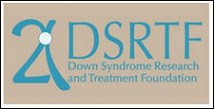When asked if they want to have a boy or a girl, "good" people respond, "I don't care, as long as the baby is healthy." You've read it here first: I am not good people. When asked that same question, I would laugh and respond, "I don't care, as long as he loves to read." Or, "I don't care, as long as she's smart." I was being light-hearted, but I really couldn't imagine having a child that was so different from me. How could I love a child who wasn't passionate about reading? How could I relate to a child who struggled terribly in school? Fear of the unknown is a very powerful thing.
It turns out that, shockingly enough, just like everybody says, you love your child anyway. Well, I do, anyway. Besides, she loves books. And I think she's a freaking genius, in her own way. But before she's born, before you know her, before you love her, when you learn that she's not going to be exactly as you'd hoped and dreamed that she would be, there's fear. Icy, gut-twisting, the-world-looks-too-bright-and-still-today fear.
When we first learned about Ellie's diagnoses, our genetics counselor (the very same one who had earlier counseled us to relax because we have nothing to worry about, a very nice young woman who seems to be in the wrong profession) tracked us down to recommend a book. She says that she always recommends
Choosing Naia to families "in your position." Obediently I went out and bought the book. It sucks. Granted, I had a pretty emotional response to it, and it's not all the book's fault. But I'm about to write my first ever scathing review and I hope I don't get sued for it. On the surface, it sounded perfect. Hey, here's a book about a well-educated, intelligent, career-driven, progressive, pro-choice couple expecting their first baby. They find out that the baby has Down syndrome and a serious heart defect. They must come to terms with this and decide whether or not to terminate the pregnancy. Hey! Just like me!
This book is poorly written and incredibly depressing. I was frustrated by the very short, simple sentences that made the book choppy and awkward to read. Halfway through, I had an epiphany: Hey! This author, he must have Down syndrome! This is a young man with Down syndrome telling this story in a direct, simple fashion. Actually, this book is really well written! Awesome! I should have left well-enough alone, but instead I looked up the author (have you noticed that I can't even use his name while I'm dissing him?). It turns out that not only does he not have Down syndrome, he's an award-winning journalist. Oops. Well, I guess the short, simple sentences are a bad habit from newspaper writing, then. Anyway, the book reads kind of like an 8th grade essay.
Plus, it's incredibly depressing. Filling in background on what it means to have Down syndrome, the author (oh, OK, Mitchell Zuckoff) introduces another character, a "high-functioning" young woman with Down syndrome, as a best-case scenario. She lives semi-independently but will never be completely independent. She's really lonely because she functions at a level above most folks with Down syndrome but slightly below most typical adults. She doesn't date. She doesn't have many friends. She has a hard time finding a job. Cheers!
When I first met Ellie's awesome, wonderful, amazing, gift-from-God pediatrician, she recommended
Expecting Adam instead. Wow! Well-written! Not sappy!
Honest! Fun to read! I loved it so much that I selected it when it was my turn to choose a book for my bookclub recently. The women in my bookclub loved it so much that they in turn bought it for their friends and family. And none of them know anyone with Down syndrome (except for Ellie, of course).
Expecting Adam is about two Harvard PhD students who learn that their second child will have Down syndrome, but it's told in such a refreshing way that it's fun to read. I don't buy it all, and I have two criticisms: Beck is harsh on Harvard, but it's not really Harvard that she's railing against for much of the book; it's actually her family. Also, I just can't quite believe all of the supernatural stuff, though some of it rings very true for me.
Anyway, if you want to read up on a this surprisingly compelling topic, there's a second book I want to recommend. This one is incredible; I just loved this book. It's about yet another couple with PhDs who have a baby with Down syndrome, but this book is a bit different. There's certainly an aspect of personal essay to the book, which is a big part of why it's so fun to read, but it's also a political argument, an academic work. And it is work to read this book, but work that makes you feel like you've exercised your brain a little bit and now it's idling at a slightly higher pace. Read
Life As We Know It: A Father, A Family, and an Exceptional Child; you'll love it. And while you're on Berube's site, check out his blog.




